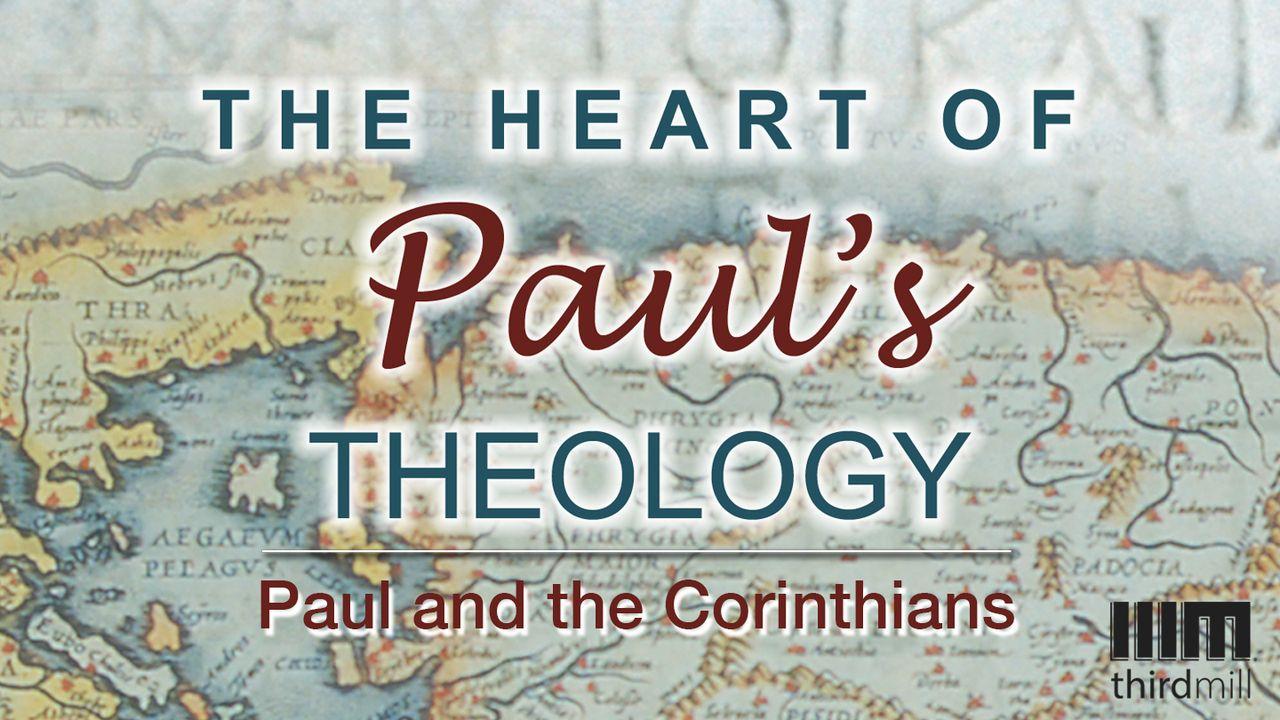The Heart Of Paul’s Theology: Paul and the CorinthiansSample

Main Body, Part 1: 2 Corinthians 1:12–7:1
The main body takes up the bulk of the letter, and includes five major subsections: a defense of Paul’s conduct in 1:12–2:11; a defense of Paul’s ministry in 2:12–7:1; instructions regarding the collection for Jerusalem in 7:2–9:15; a continuing defense of Paul’s ministry in 10:1–12:13; and a discussion of Paul’s upcoming visit in 12:14–13:10.
In 1:12–2:11 Paul defended his conduct in two matters. First, he explained why he had not visited Corinth as he had previously planned. And second, he addressed a wrong that had been done to him by one of the Corinthians. Evidently, after Paul had made known his plans to visit Corinth, a conflict had arisen between him and some within the Corinthian church. As a result, Paul knew that if he were to visit them, he would have to be confrontational, perhaps even disciplinary. So, as an act of forbearance on Paul’s part, he changed his travel plans. A number of Christians in Corinth failed to realize that this was an act of mercy and were quite offended by his withdrawal. Some even questioned his credibility.
In what may have been a related matter, Paul also addressed the situation of a particular believer who had wronged him and who had subsequently been disciplined by the church. Paul assured the church that he had forgiven the man and that the discipline had been sufficient. And he instructed the church to reaffirm their love for the man and to restore him to their fellowship.
In 2:12–7:1 Paul addressed a far more serious issue — certain individuals within the Corinthian church continued to doubt Paul’s apostleship. As we have already seen, Paul had addressed this issue in 1 Corinthians. But from his words in 2 Corinthians, it is obvious that a number of Christians in Corinth had not repented of their error. So, Paul provided an extensive defense of the nature of his ministry, proclaiming that his call and his power both came from God, and making it clear that to reject his apostleship had grave consequences.
In fact, in 2 Corinthians 5:18-20 he went so far as to suggest that those who doubted his apostleship were not even saved:
God … gave us the ministry of reconciliation… God was reconciling the world to himself in Christ, not counting men’s sins against them… We are … Christ’s ambassadors … Be reconciled to God.
Those who have not been reconciled to God still bear the weight of their own sin — they have not been forgiven. And of course, Jesus Himself taught that to reject His ambassador is to reject Him as well. As the Lord told His ministers in Luke 10:16:
The one who listens to you listens to me, and the one who rejects you rejects me.
This subject was so important that Paul spent much of this letter addressing it in various ways. The last thing he wanted was for the Corinthians he loved so dearly to perish because they refused his gospel.
About this Plan

This reading plan explores the background to Paul's letters to the Corinthians, examines the structure and content of First and Second Corinthians, and reveals his eschatology.
More









